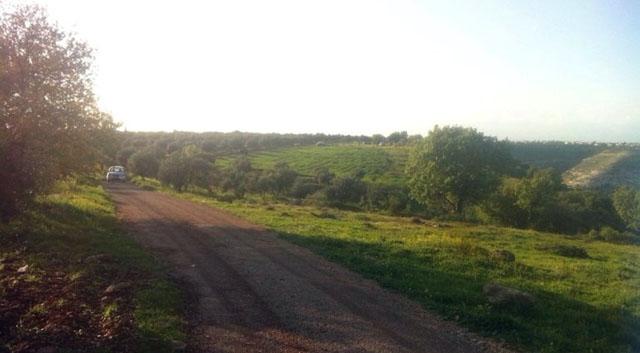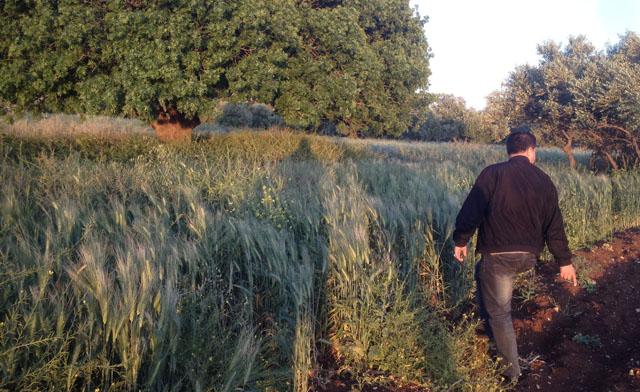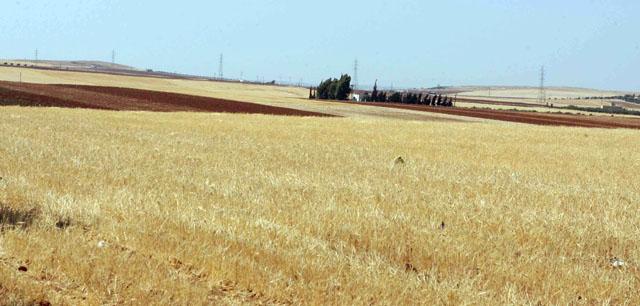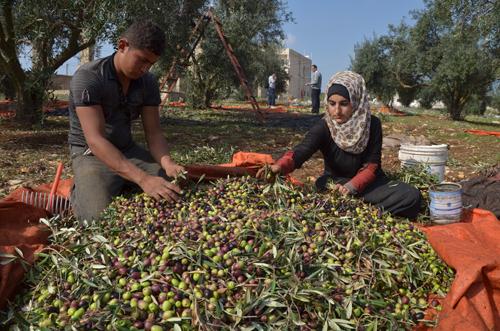You are here
Irbid farmers upbeat over upcoming harvest season
By Omar Obeidat - Mar 28,2015 - Last updated at Mar 28,2015

IRBID — Farmers in Irbid are optimistic about the 2015 harvest thanks to a good rain season.
In interviews with The Jordan Times, several farmers said the Kingdom's northern region has received a higher rainfall average than last year, expecting an increase in wheat and barley crops in addition to a better bearing season for olive.
"It has been a good rainy season this year," said Hussein Al Mashhour, from the village of Hubras in Irbid Governorate, some 80km north of Amman.
Mashhour said he plans to start harvesting his 30 dunums of wheat and 20 dunums of barley by the beginning of June, adding that he expects crops to be double last year's yield.
Last year, the agricultural sector was hit badly because the wet season did not last long enough, said Farouq Obeidat, a farmer from the village of Al Rafid, noting that farmers in the village see this year as very promising for their crops.
Ahmad Zu'bi is also optimistic about this year's yield, as he expects olive trees to produce double the quantities of last year.
"Olive trees are well irrigated and we are upbeat about this year when cultivation starts in October," Zu'bi added, adding that cattle and sheep breeders are happy as the good rain amounts resulted in lush grass cover across the northern region.
The optimism of farmers echoes the positive forecast of a better year by authorities.
Agriculture Ministry Spokesperson Nimer Haddadin told The Jordan Times last week that wheat production is expected to double this year compared to the crop’s yield in 2014 due to abundant rain during the winter.
The country produced 12,000 tonnes of wheat last year, he said, adding that excellent rain during the wet season is forecast to increase wheat production this year to between 20,000 and 25,000 tonnes.
A total of 600,000 dunums of lands are planted with wheat every year, according to the spokesperson.
The Jordan Meteorological Department said the the majority of governorates surpassed their long-term annual average of rainfall during the wet season.
The northern governorates received 99 per cent of their long-term annual average of rainfall.
Irbid produces around one-third of the Kingdom's olive oil production.
Annual production of olive oil ranges between 20,000 tonnes to 25,000 tonnes.
There are around 17 million olive trees in the country, with nearly half of them in the northern region, according to official estimates.
Related Articles
Farmers in the northern part of Irbid Governorate describe this year’s agricultural season as “exceptional”.
Wheat production is expected to double this year compared to the crop’s yield in 2014 due to abundant rain in winter, an Agriculture Ministry official said on Tuesday.
IRBID — Farmers in the Kingdom’s northern region are hoping for more sunny days so they can harvest their olives. The farmers told The

















